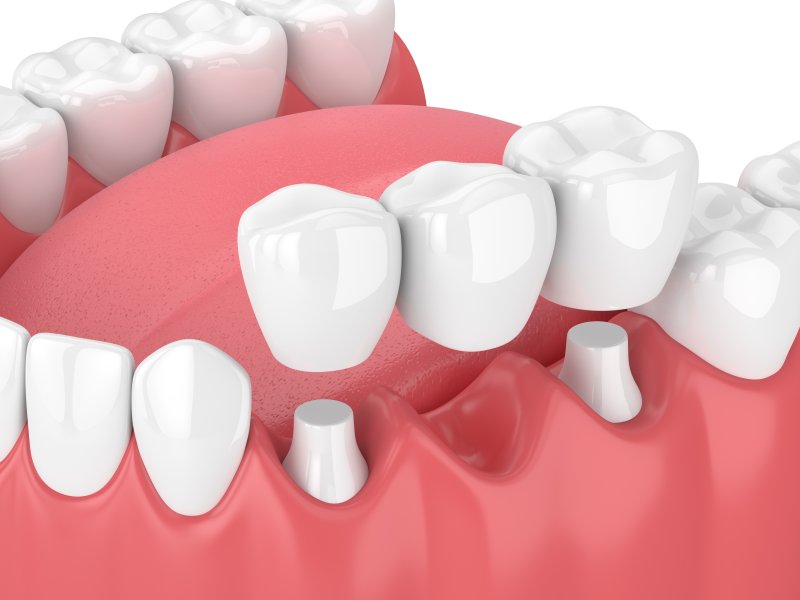
Dental bridges are a great investment for replacing lost teeth, and with good care they can potentially last you as long as 15 years! You’ll want to make sure to take the proper precautions to both save your money and prevent future troubles. A good way to preserve your bridge is to know how they can fail in the first place. Read on to learn six common causes of dental bridge failure in Parsippany.
#1: Poor Dental Hygiene
Perhaps the most significant cause for dental bridge failure is poor dental hygiene practices. Even though your bridge won’t decay, it’s still crucial to keep your abutment teeth clean. Regularly brushing and flossing them can significantly reduce your risk of developing cavities from plaque or bacteria. By cleaning around your bridge, you can ensure the teeth underneath are in good shape.
#2: Inadequate Teeth Support or Abutment
In order for your bridges to work properly, they need to have an even distribution of weight. If this is not the case, then your teeth can risk becoming damaged or weakened over time. To avoid your abutment teeth from becoming damaged, you can request to have your bridge supported by two dental implants fitted in the jawbone.
#3: Poor Biting Habits
Like with any of your teeth, you want to avoid biting into hard objects or clenching your teeth too often. Doing so can potentially weaken or damage the crowns of your bridges as well as your natural enamel. This means keeping away from eating tough materials—like candy, ice cubes, or pens—and preventing yourself from placing excessive pressure on your teeth.
#4: Low-Quality Material
Dental bridges can be constructed using multiple kinds of materials, which can affect its durability. While this might offer more affordable options, this can increase the risk of dental bridge failure. To ensure your bridge lasts, you can always ask your dentist to help you find the most valuable materials.
#5: Lacking Bone Support
After you lose a tooth, that area of the jawbone loses the structure it once had from the tooth’s roots. Since a dental bridge doesn’t replace the roots, your jawbone could begin losing its density. In time, your other teeth won’t have the foundation needed to secure your bridge, causing it to fail.
#6: Skipping Regular Visits to the Dentist
A major reason dental bridges fail is a lack of professional attention. Your dentist can monitor the integrity of your bridges and provide expert feedback on any improvements that can be done. This will help prevent potential issues from starting.
Preventing your dental bridge from failing is simply a matter of knowing the proper practices and routines to maintain them. If you want to make the most of your bridge, your dentist is always here to help!
About the Practice
At Rauchberg Dental Group, you’ll find a team dedicated to providing patients with quality and relaxing dental care. With a multitude of dental services and the latest technology, your team can help treat all your dental bridge concerns. If you want to know more about the causes of dental bridge failure, visit their website or call them at (973) 718-9887.
